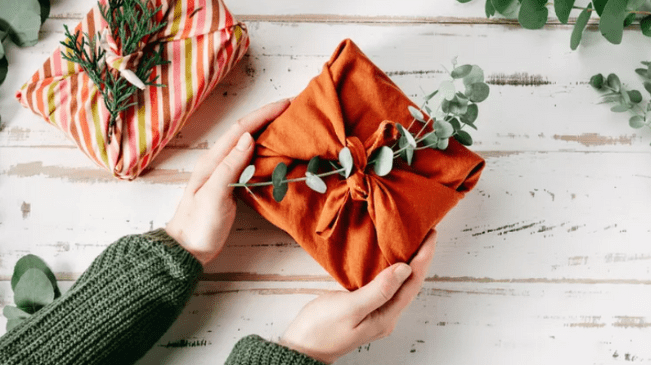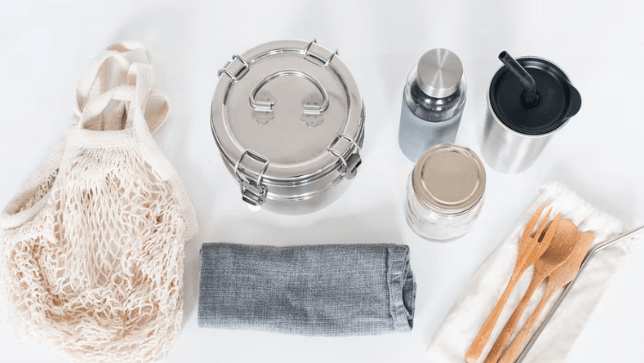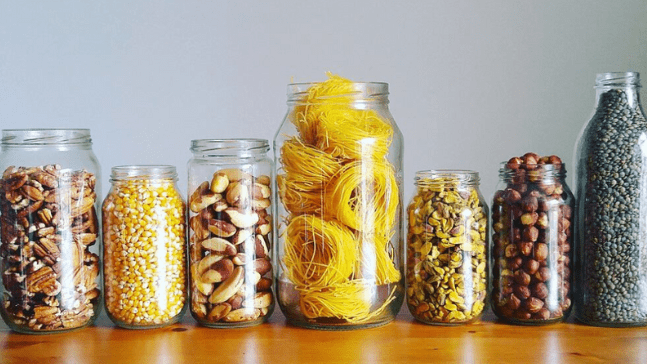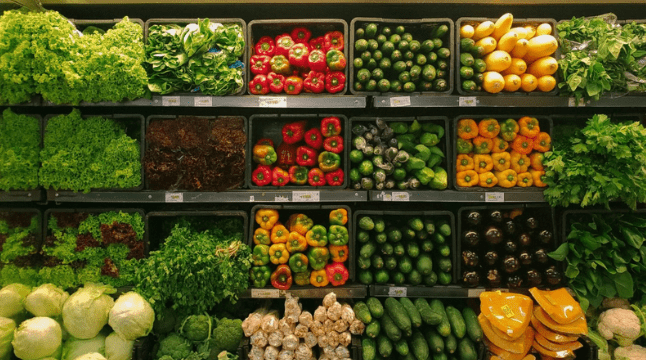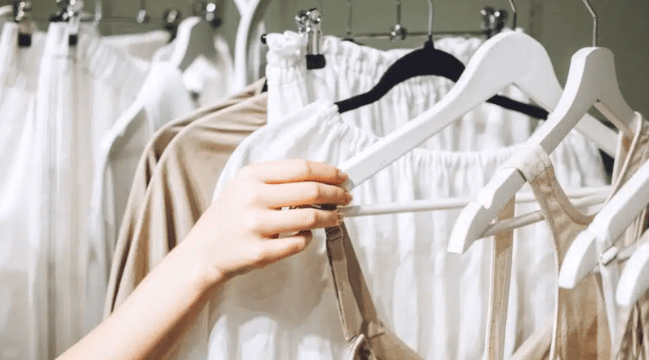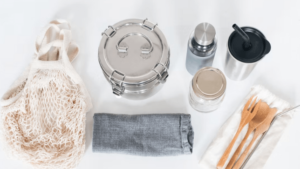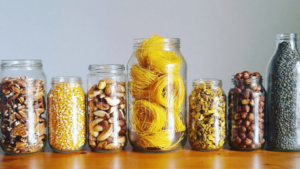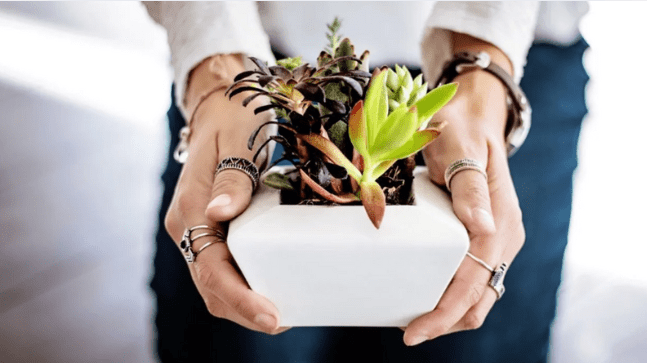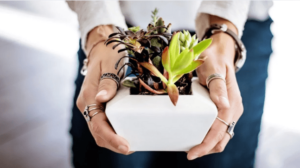One of the greatest environmental catastrophes of our time is plastic pollution. From choking oceans to clogging landfills, single-use plastics have become a major environmental and public health problem worldwide. But what if you could harness your grocery shopping routine and wield it as an effective weapon of resistance? At its core, plastic-free grocery shopping isn’t some trendy buzzword — it’s a life-changing lifestyle choice that cuts down on waste, keeps money in the bank, and saves the planet for all future generations to come.
In the ultimate guide, you’ll find out how to shop smarter, greener and with absolutely no plastic in sight. From prepping your reusable bags to where to shop and how to plan zero-plastic meals to the letter, this article includes everything you need to become a plastic-free grocery pro. Time to change the way you shop and vote with your dollars? Let’s dive in.
Why Plastic-Free Supermarket Shopping Is Essential
Plastic is ubiquitous in grocery stores — from the produce bags and packages around loaves of bread and snacks to the plastic containers that fill the bulk bin aisle. Here’s why avoiding plastic at the grocery store is so important:
-
Quells Plastic Pollution: Each plastic item you refuse is a plastic item that isn’t entering our oceans, rivers or landfills.
-
Conserves WildLife: Removes 1200 beer bottles of garbage from the ocean and coastlines.
-
Reduces Carbon Footprint: Manufacturing plastic requires a lot of energy, and it releases greenhouse gases.
-
Supports Sustainable Industries: If manufacturers know that there’s a demand for plastic-free products, their industry will change.
What You Can Do on a Trip to the Grocery Store
Get Out The Reusable Grocery Bags And Containers
Here’s what you’ll need before you go:
-
Reusable Produce Bags: Lightweight mesh or cloth bags instead of single-use plastic bags.
-
Glass or Stainless Steel Containers: Carry your glass or stainless steel containers for bulk, deli, or bakery items.
-
Cotton Tote Bags – Strong and sturdy totes can handle heavy groceries and last for years.
You can also use your own store-provided plastic bags, if you put collection, storage, or carry bags on your list.
Bulk Stores and Zero-Waste Markets: For Seasoning, Cinnamon, Paprika, Cumin
These recipes are great, but may only be the beginning of your zero-waste journey.
-
Bulk stores enable you to purchase just what you need without added plastic packaging.
-
Bring your own containers, weigh them, and fill them with grains, nuts, spices or dried fruits.
-
Zero-waste stores typically carry unpackaged fresh produce, dairy substitutes and household products.
-
In many place, plastic-free, sustainable shopping co-ops are popping up.
1. Fresh, Loose Produce
This should be your number one priority.
-
Avoid packaged produce and opt for loose fruits and vegetables. “Most of what you buy in the grocery store is available unpacked.
-
Select fresh fruits and vegetables that are not wrapped in plastic or presented in trays.
-
For fragile items like berries, seek out stores that display paper or compostable options.
-
Prepack and store produce in cooler, washable bags or containers at home.
3) Shop the local Farmers and Farmers’ Markets
Farmers’ markets can be hard to beat for plastic-free shopping:
-
Items of fruit and veg are generally available to buy loose, or in biodegradable packaging.
-
Supports local agriculture and cuts down on plastic-heavy supply chains.
-
You can bring your own bags or containers for your purchases.
Select Plastic-Free Brands and Products
Seek out brands that adhere to minimal or plastic free packaging:
-
Choose a glass jar, paper carton or a metal tin instead of a plastic bottle or wrapper.
-
Today, many brands are either selling in refillable packaging or compostable packaging.
-
Support businesses that have transparent sustainability and zero-waste policies.
Make Your Own Staples at Home
They also make a huge difference in reducing packaging waste:
-
You can bake your own bread with bulk flour.
-
Make nut milks or plant-based yogurt from store-bought, plastic-free ingredients.
-
Make your own snacks (like granola, energy bars, or sauces) from bulk ingredients.
Bring a Water Bottle and Your Own Coffee Cup
Make sure to stay away from plastic water bottles and throw-away cups by bringing your own bottles and cups. Most supermarkets and markets offer water refill stations.
Input As Used packets to Minimize Waste.
Meal planning saves you from the overbuy and food waste:
-
Look for meals that share similar ingredients.
-
Leftovers can also be used creatively so they don’t wind up in the trash.
-
Stay on your list to avoid impulse buys that are often in plastic wrap.
Say No to Plastic Bags When Checking Out
Politely decline plastic bags and carry your groceries in your reusable bags or boxes. Pack small bags for loose things you’ll want to keep separate, like nuts or bulk goods.
Learn and Share
The plastic-free journey can be contagious:
-
Pass along tips and experiences to friends or family members.
-
Advocate for policies and programs that reduce plastic.
-
Connect with and support zero-waste communities online.
Difficulties And How To Resist Them
Of course, plastic-free grocery shopping is not without its challenges:
-
Limited Shopping: Not every city or area will have bulk stores or zero waste markets. Solution: Find bulk online retailers or join local zero-waste groups.
-
Higher Price: Some products without plastics cost more. Solution: Buy in bulk, make your own, and go with the meal plan.
-
Convenient Side Effect: Many convenience items are plastic-clad. Solution: Be prepared, cook and stock up, don’t waste and reuse.
-
Strug’ returnFrom Otherw: Your friends and family may not get what you’re doing. Solution: Set the example, and share the benefits calmly.
Benefits of Shopping Plastic-Free Aside From the Environment
-
Healthier Food: As plastic usage decreases, so will the chemicals in food.
-
Community Connection: Shopping locally connects you with farmers and artisans.
-
Conscious Consumerism: Promotes thoughtful purchasing, avoids impulse buying.
-
Saving Money: Meal planning and buying in bulk saves money over time.
Conclusion
The pursuit of grocery shopping without plastic isn’t merely a way to shop — it’s an incredibly powerful act of environmental stewardship that anyone can practice. With reusable bags, bulk and unpackaged items, sustainable brands and sensible meal planning, you can slash plastic waste and help save the planet. Every small step counts. Begin today and join the growing world-wide plastic-free grocery shopping movement.
Other Questions About Shopping for Groceries Without Plastic
Q1: How can I find plastic-free stores in my area?
A1: Look up zero-waste shops, bulk stores or farmers’ markets near you. Apps and websites, like Zero Waste Home or local Facebook groups can provide assistance.
Second question: Is there any way to get meat or dairy plastic-free?
Some farmers’ markets or butcher shops will let you bring your own containers. Ask your stores about their policies.
Q3: Do you end up spending more for plastic-free shopping?
A3: To begin with, certain products may be costlier, but purchasing in large quantities and waste reduction can eventually save you money.
Q4: What about if I don’t bring my reusable bags?
A4: Place in your car or in your purse or near the door as a reminder. You can also fold compact reusable bags into your pocket.
Q5: I can’t get my family to go plastic-free shopping; any advice?
A5: Educate them about plastic pollution, take them with you when you shop, and emphasize the money saved and better health from avoiding pre-packaged snacks.
